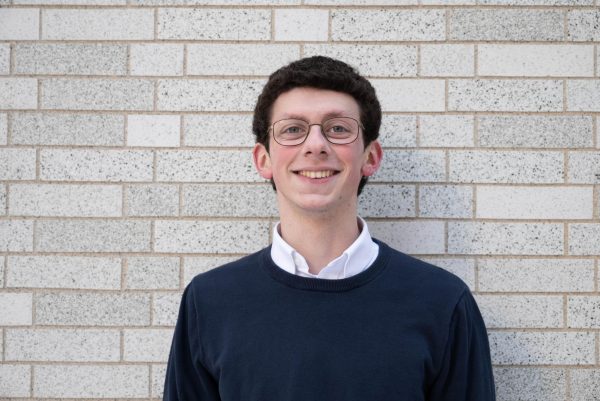In a controversial decision, Northeastern will eliminate the Student Support Initiative effective May 3, laying off over 100 student workers and 20 full-time staff.
Launched in the fall of 2022, the short-lived Student Support Initiative, or SSI, provides mental health and resource support to first- and second-year students through the MentorHub NU app. Though staff say they were informed of an upcoming change and promised their jobs were secure, an email to SSI employees April 1 confirmed the program’s end.
“After two years, the university has decided to sunset the Student Support Initiative,” the university told The News in an email statement. “The services offered by SSI either already exist across Northeastern, or will be absorbed within existing student-serving areas where students can successfully utilize them.”
But students employed by SSI, mainly as Student Success Guides, or SSGs, say the decision may hamper students’ understanding of what resources the university provides.
Jeta Perjuci, a second-year media and screen studies major who has been a SSG since spring 2023, explained how SSI acted as a “middleman” in connecting first-year students to resources, including many of the university’s mental health programs. Now, students may have a harder time finding the right resources without an easily-accessible guide, Perjuci said.
A third-year SSG, who was granted anonymity due to privacy concerns, said this service was particularly helpful for incoming freshmen. New Northeastern students were assigned a guide each semester to help them navigate course schedules, academic advisors and more. Over the past two years, the guide said they had a caseload of over 40 students and noticed a consistent increase in SSI engagement during the weeks leading up to the first day of classes.
“Northeastern just needs to make sure that they have a way to connect with students before they get to campus,” the third-year SSG said. “People would be stressed about when they’re going to be registering for classes, when they’re going to hear from their academic advisors. … They would be very worried about it, which is understandable.”
The anonymous SSG also commented on the full-time SSI employees, saying the group of 20 is among the most affected by the program’s termination.
A full-time employee at SSI, who was granted anonymity due to fear of retaliation, explained that, despite the university’s intentions, there are more consequences than benefits in removing SSI.
“I do want to note that many students did find their SSGs helpful and interacted with them on a regular basis,” the employee said in an email statement to The News. “There was no indication that SSI is being eliminated due to the effectiveness of SSGs [or] the program.”
While SSI employees agreed the initiative worked well for students accessing its services, the third-year SSG addressed a potential pitfall: A majority of first-and second-year students completely ignored their SSGs, with many claiming the resource was too impersonal, the SSG said.
“[Ending SSI] made sense to me, because it hadn’t seemed like the most effective way to reach students,” the third-year student said. “All we had been talking about all semester long, all year long, was low engagement … They had gotten a lot of responses in the pilot year that were like, ‘It feels like I’m talking to a robot.’”
Perjuci noticed these trends as well.
“As an SSG, I oversee a big group of students through MentorHub, and I don’t receive responses too often even though I check in with them weekly,” she said. “So my best theory is that SSI management noticed this and thought that it might not be necessary to have a whole department to help students navigate resources.”
Despite generally low participation in SSI, some students said they found parts of the initiative incredibly helpful.
“When I was [in] N.U.in, my student success coordinator, who I did regular Husky Chats with … I found that resource to be particularly useful,” said first-year student Samuel Pollak, who is in the Explore Program. “Being able to quickly access them through MentorHub, I found it to be really useful whenever I had an emergency or anything like that. But in terms of my Student Success Guide, the person who I never met that was on MentorHub, I never used that service…”
Though many students didn’t access all parts of the initiative, the anonymous full-time employee saw symptoms of a bigger issue. They said SSI was the second mentor program the school has canceled within the last few years, beginning with the university’s SAIL platform.
“Across the board, [Northeastern] is generally talking about slowing down spending and not hiring any nonessential roles,” the employee said. “With the high cost of tuition, it is important for students to know where their money is going and for them to feel like it’s supporting resources that will benefit them.”
At a February faculty senate meeting, Northeastern administration announced it would look into budget cuts for the upcoming fiscal year, but emphasized a commitment to maintaining reliable student resources and said the majority of budget cuts would come from decreased faculty hiring.
While absorbing any redundant or underutilized features of SSI into existing programs could help students access more of the school’s resources while being more cost-effective, the anonymous third-year SSG worried the change might alienate students from the unique support of a dedicated peer.
“I think there’s a benefit to talking to people that understand your situation because a lot of us that were SSGs, we could relate to what students were dealing with when they came to us with problems,” the third-year SSG said. “But if not, then I think it further isolates students that are dealing with mental health issues.”
The full effects of the program’s elimination are not yet evident. But the full-time SSI employee doesn’t think this change will be positive.
“I would say there are certainly more consequences than benefits,” the staff member said. “I can see having one less person to talk to causing some issues.”














